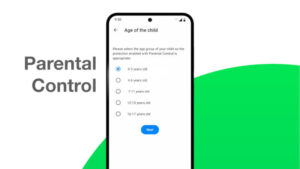FOSS Week in Review
Botnet steals bitcoins
We figure that any currency that can’t be safely tucked into a mattress isn’t secure, so we haven’t been too quick to jump on the bitcoin bandwagon. Needless to say, we weren’t surprised on Monday when Reuters reported that there’s a botnet on the loose with the aim of stealing the virtual currency.
According to the Chicago based security firm Trustwave, hundreds of thousands of computers have been infected with “Pony” malware to form a botnet going after bitcoin and other virtual currencies. So far, at least 85 virtual wallets have been stolen.
“Trustwave said it believes the crime ring is still operating, though it does not know who is running the group. The company said it has disrupted the servers that were controlling machines infected with Pony, but expects the group to launch more attacks on virtual currency users.
“A representative for the Bitcoin Foundation, a trade group that promotes adoption of the virtual currency, advised bitcoin users to store their currency offline in a secure location to prevent cyber criminals from stealing them.”

Mozilla announces seven new phones that use Firefox OS
We learned from readwrite on Sunday that Mozilla has announced that seven new phones are slated to run Firefox OS. The announcement was made at the Mobile World Conference in Barcelona, Spain. In addition, it announced a $25 smartphone from chipmaker Spreadtrum that’s scheduled to be released later in the year. Mozilla says that in 2014 it’ll be adding to the fifteen markets where it already has a presence by adding twelve new markets in South America, Africa, Europe and Asia.
The operating system, which uses HTML 5 as its backbone, is aimed a emerging markets where cost is a factor.
“Everybody seems to be focusing on emerging markets these days. Lenovo bought Motorola in part because the Moto G has a foothold in Latin America. Apple still wants to penetrate immense markets like China and India while Microsoft announced a broad manufacturer partnership program at an event in Barcelona today to reach into the budget device market across the world.
“‘The way that we compete is through building a community. So, what we’ve done is that Firefox OS is completely open source,’ said Sullivan in an interview with ReadWrite. ‘We don’t build it and open source it when it is done. It is open source. So, Telefonica, Qualcomm, KDDI … many organizations are actively contributing code. So, we feel like we punch way beyond our employee base.'”
Meanwhile, the soon-to-be-Microsoft-owned Nokia just came out with a line of phones running a fork of Android. However, you’ll be excused if at first glance you confuse it for yet another line of Windows phones, as the devices are skinned with the interface formally known as Metro.
This has many online writers predicting that Microsoft might soon drop the Windows Phone platform altogether in favor of devices running Windows branded Android. This led ZDNet’s Steven J. Vaughan-Nichols to write:
“…Windows Phone has failed. Even in Europe, where Microsoft’s mobile operating system seems to do the best, it seems to have stalled out at the 10 percent mark. …
“Ed Bott, a Windows pro’s pro and no friend to open-source operating systems, also sees Microsoft sticking with Nokia’s new Android phones. As Bott has pointed out before, Microsoft is turning into a services and hardware company instead of the operating system and application giant we’ve known for decades.”
In other words, the era of Windows for Linux may come sooner than anyone expects.
Oddly, at just about the same time that Nokia’s announcing the arrival of a phone running open source Windroid, the folks in Redmond are pushing some more FUD, saying that FOSS users are nothing if not dissatisfied with their use of open source. As reported by Katherine Noyes on LinuxInsider, this latest FUD attack was mounted by Microsoft blogger Alexbuk, who wrote of the UK’s proposal to mandate the use of ODF.
“‘We believe this will cause problems for citizens and businesses who use office suites which don’t support ODF,’ he suggested. Not only that, but ‘we believe very strongly that the current proposal is likely to increase costs, cause dissatisfaction amongst citizens and businesses, add complexity to the process of dealing with government and negatively impact some suppliers to government.'”
Hmmmm… We can only think of one office suite that doesn’t fully support ODF.
Keeping out the NSA
On Monday, at a security conference in San Francisco, Christopher Soghoian, a principal technologist and policy analyst for the American Civil Liberties Union (ACLU), raised the alarm on government intrusion into cyberspace, using the Lavabit and Skype scenarios as evidence of an Internet going horribly wrong. According to Tom’s Guide, he said that companies must change the way they operate.
“‘Spread the code and the risk around,’ he recommended. ‘Put developers in other countries. Put people in France or Germany, so that if requests for information are received, the legal processes can take years to resolve.'”
You may remember that when Skype was based in Estonia, it was proved to be a safe system. It wasn’t until the technology was bought by Microsoft and moved to the U.S. that the NSA managed to get it’s tentacles inside.
Oddly, the NSA is now claiming that the barrage of legal attacks it’s now facing will cause it to be forced to retain data even longer than planned. Ars Technica reported on Wednesday that the NSA has made a fourteen page court filing explaining its thinking:
“Based upon the issues raised by Plaintiffs in the above-referenced lawsuits and the Government’s potential defenses to those claims, the United States must ensure that all potentially relevant evidence is retained which includes the [business records] metadata obtained in bulk from certain telecommunications service providers pursuant to this Court’s production orders. To meet this obligation, the Government seeks an order that would allow the NSA to retain the [business records] metadata for non-analytic purposes until relieved of its preservation obligations or until further order of this Court under the conditions described below. Based upon the claims raised and the relief sought, a more limited retention of the [business records] metadata is not possible as there is no way for the Government to know in advance and then segregate and retain only that [business records] metadata specifically relevant to the identified lawsuits.”
That’ll teach us to complain, eh?
Well, another week down the drain. Until our next Week in Review, may the FOSS be with you…















I’m glad I’m not the only one who noticed just when, on Snowden’s NSA snooping timeline, Skype arrived.
So why did Microsoft buy Skype? Why re-engineer it to remove all ad-hoc supernodes and direct peer-to-peer calls?
The only answer that fits all the changes: The NSA told us to.